By Summer Crawford
news editor
@summercrawfordd
Citizens roam the streets, gathering throughout the city on a normal day. In the distance one can hear the soaring of deadly rockets being launched and suicide bombers nearing as the sky rumbles with explosions. The year is 2014, and the people in this city are the target.
This is Israel.
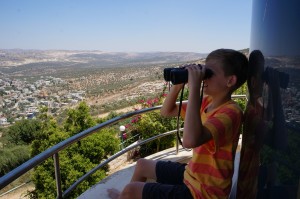
The people in Israel and areas surrounding it have lived through major conflict, and, this past summer, one Coppell family ventured into this same area of violence.
Coppell resident Natasha Livshits has been traveling almost every summer since 1999 with her two sons, Coppell High School junior Ran Trakhtengerts and Coppell Middle School North eighth grader David Trakhtengerts, to a place in the center of Israel called Rishon Lezion.
Ran was in Israel for eight months after being born, and David was born in the United States. Originally from Russia, Livshits moved to the United States in 1999 after being in Israel for eight years, but both she and her husband, Igor, left their parents behind.
Ran and David flew to Israel this summer to visit their grandparents like they do every summer, but their mother did not accompany them. This was one of the summers they went alone.
“This year we were concerned, less with Ran because he went before all of this started and all the problems started,” Livshits said. “It was David that we were more concerned about because he was going alone. Usually they go together, but this year we decided to split them and we planned to send David with an escort for minors, but then at the airport we learned that they don’t do it anymore.”
As a mother, Livshits was concerned for her children’s safety, but she wanted them to experience life and spend time with family.
“It was more dangerous because of the situation that happened this year. I did not hesitate to send them because first of all, it was already planned and second, it would not be fair for my parents because they live their lives in this dangerous situation,” Livshits said.
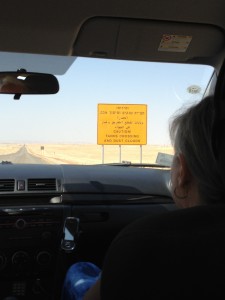
Part of the experience for Ran and David of living in Israel this summer was hearing the warning sirens. These sirens would alert the city of danger and signal to take shelter.
“It is kind of scary thinking that something might happen, but it has been to a certain extent like this for a while now,” Ran said. “Sirens happen everyday by the hundreds all over the place, and afterwards you would go look on the news to see what happened, but at the same time people got used to it and I got used to it.
“You hear the siren and go to shelter. 10 minutes later you come out. It became part of the day.”
Amidst the chaos of sirens, there were rockets being fired from locations such as Syria into the center of Israel. Livshits says the rockets this summer were fired from the Gaza Strip, never before being able to reach the center of Israel. The only thing stopping these rockets is the Iron Dome.
“[Iron Dome] is a system which detects and shoots down rockets fired from anywhere, but it is more active now. It usually destroys about 90 percent of them,” Ran said. “So it kind of lessens the impact and fear of everything, but there’s always that 10 percent that will make it through.”
While the Trakhtengerts boys were living in apartments with their grandparents, they had to add in the process of sheltering themselves from rockets to their daily routine. David remembers a situation in which he felt smack dab in the middle of an explosion.
“I remember one time, the explosion sounded like it was right outside the window, but it really wasn’t. The windows were shaking and there was a boom and everything was shaking,” David said. “Everyone was scared. It kind of got to be routine.”
The small glimpse of violence that Ran and David experienced is something that Livshits’ parents live with everyday. Since 1991 they have been in a city where danger is nearby.
“[War in Israel] is disturbing their lives and being here and seeing that, the hardest part for me is that they are getting used to it,” Livshits said. “Being under those sirens and being in the war the whole time and getting used to it is wrong, it should not be the norm,” Livshits said. “[My parents] are not young. It is not that easy to run in 15 to 40 seconds when you have to find shelter. If you are at home it is fine, but what if you are outside? What if you are in the car driving?”
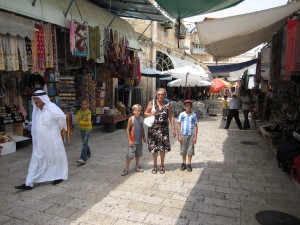
Bomb shelters in Israel have been built in to apartments and houses, but sometimes people have to go into stairwells to be safe because they are surrounded by sturdy walls. Some of the shelters are ordinary storage rooms, but the doors are thick and hard to open and close. There are multiple locks on the door to ensure safety.
“I knew what was going on but I didn’t feel it. When I got there I was in it. I was around everything,” David said. “Emotionally, I was different, I started thinking differently. At first I thought there was this war and people are shooting rockets and they are getting shot down, but when you are in it, it is a whole different story.”
Even before Ran and David went this summer, they knew the seriousness of what was happening. By going time and time again, they were exposed to a different side of life.
“It didn’t take going there to change the way I think. I do think differently in the way that I understand people don’t always agree. There is always something to make someone else angry or uncomfortable, and if it wasn’t this, there would always be something else,” Ran said.

Having more experience living in Israel for longer periods of time, Livshits has seen the political changes over the years. For as long as she can remember Israel has not been worry free.
“I was very young when I was in Israel, and I was more involved and things were black and white. Now with age, you understand that things are more gray, and it is hard to define who is right and who is wrong,” Livshits said. “Many times you are being told things, and you have to be aware of people that are trying to brainwash you, not only in Israel or the United States, but everywhere. You have to be smart enough to go and research by yourself and not just believe politicians.”
Although this year showed the Trakhtengerts more of the negative side of life, they have learned valuable lessons that will help them as adults.

“First of all it is good to build their opinions and to be educated. Second the world is globalizing and you never know where you will get a job and where you will end up living,” Livshits said. “Another thing is that I think learning different cultures makes you more of a patient person. You can accept differences because you understand them better, and by learning that, [Ran and David] are learning to be more patient to others.”
Another important aspect of their trip was learning what it means to be Jewish.
“I hope they learned that being Jewish is not just having Hanukkah instead of Christmas. It is something else, and they learned their grandparents lived this life, this dangerous life,” Livshits said. “They do know that the world does not end in Texas or in the United States. People are different, people have different cultures and speak different languages and have different values.”
Livshits is determined not to let anything stop her family from traveling to a country that she loves to see the people she loves. Whether Israel is becoming more dangerous or not, she will always find a way to visit.













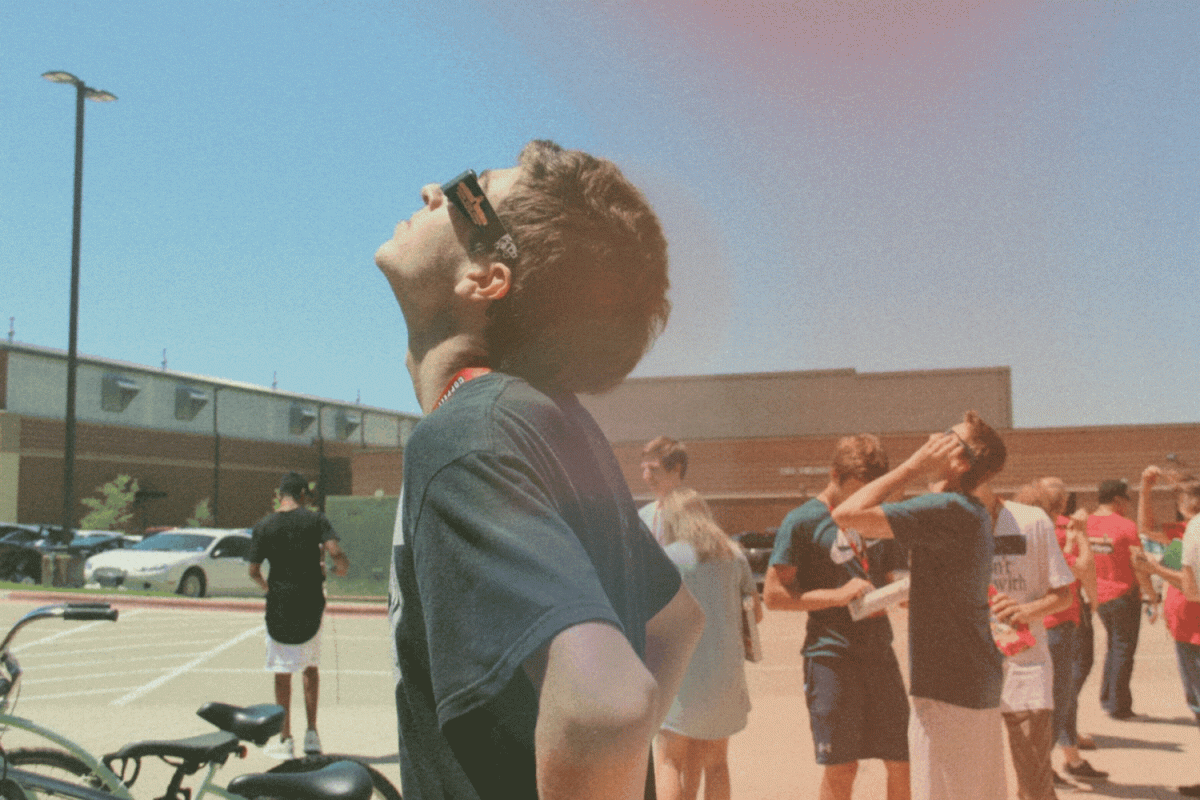
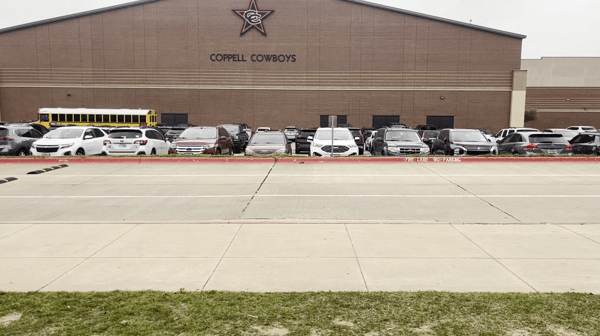
Willump • Mar 6, 2021 at 12:34 am
This david chap, is very brave. What a great bloke and read!